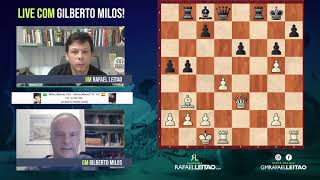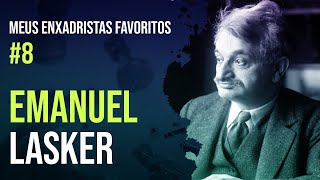Imagine yourself as the chess world champion: would you be able to keep the title for long? Russian master player Anatoly Karpov managed to hold it for no less than 10 consecutive years, and he even recovered it for some more good time after having lost it. Impressive, isn’t it? So keep reading and learn everything that is amazing in the history of this great chess player!
First moves
Anatoly Karpov was born in 1951 in Zlatoust, southwestern Russia, the old Soviet Union. At 4 years of age, little Karpov learned to play chess and at 11 he was already a candidate to the Master’s degree. With so much talent showing early in the boy, he was accepted into world champion Mikhail Botvinnik’s chess school at age 12.
With the help of such a prestigious tutor, Karpov considerably improved his knowledge and skills in chess to win the title of National Master in 1966 at age 15, beating the record previously set by Boris Spassky.
Training and getting the GM title
We have seen how chess and mathematics are closely related, and it is no coincidence that, after winning the gold medal at school for his exemplary performance, Anatoly Karpov decided to study Mathematics at the Moscow State University. However, in order to be closer to his tutor then, GM Semyon Furman, Karpov transferred to the Leningrad State University (now St. Petersburg State University) and ended up graduating in Economics.
But the change was worth it. In 1969 Karpov became the second Soviet boy (again on the track of Boris Spassky) to win the World Youth Chess Championship, and in 1970 he earned the Grand Master title, finishing fourth in an international tournament held in Caracas, Venezuela.
From Russia to the world
From then and on, Karpov kept competing in tournaments in the old Soviet Union until he was able to qualify to the 1974 Candidates Tournament, in which he would play for the chance to challenge Bobby Fischer, the world champion then.
During the preliminary rounds of the tournament, Karpov defeated Russian GM Lev Polugaevsky and prepared to face the former world champion Boris Spassky in the semifinal. Karpov felt discouraged in the beginning, sure that Spassky would win since he was in the hype to reclaim his title against champion Bobby Fischer. But the younger chess player beat Spassky with aggressive and precise moves. The highly disputed final between Karpov and veteran Viktor Korchnoi was played in Moscow in a series of 19 matches. There were 12 draws, but Karpov finished with 3 wins and beat Korchnoi, who got only 2.
Karpov’s game at that cycle of the Candidates already spread the warning of his long domain. His games, especially in the match against Spassky, were of the highest level. For you to get the idea, Botvinnik edited a book exclusively about Karpov’s games in those matches.
Winner of the Candidates Tournament, Karpov was preparing to face champion Bobby Fischer in Manila, Philippines. The problem was that such a highly anticipated and expected meeting ended up never happening! That was because Fischer wanted the dispute to be decided by whoever won 10 matches first, not counting draws, and that the title remained with him if the players won 9 matches each. However, FIDE did not agree with these rules, and after Fischer refused to play according to the proposal of the Federation in 1974, they took the title from the American chess player and gave it to the young Anatoly Karpov. A dazzling turn of events, wasn’t it? Even today many chess players imagine what would have happened if Karpov and Fischer had dueled in 1974.
The long reign of Anatoly Karpov
But if you think that Karpov was not worth the honor just because he “won” the title of world champion without facing Bobby Fischer, think again: after all that confusion, the Soviet youngster won virtually every major tournaments between 1975 and 1985 and managed to keep the “crown” for all that time.
Beating great chess players from around the world one after another, Anatoly Karpov even managed to beat the record for most consecutive victories in tournaments. During that period, perhaps his most challenging opponent must have been Viktor Korchnoi – who was beaten hard by Karpov in the final of the Candidates Tournament in 1974. Just so you know, the first defeat by Karpov after his record-breaking nine consecutive victories was precisely against Korchnoi in 1978. But to show that he learns from his mistakes, Karpov defeated Korchnoi heavily in 1981, after the veteran won the Tournament of candidates, and so he earned the chance to face the world champion.
A new rival
The one who also had been following in the footsteps of chess champion Karpov very closely was the eight years younger and also Soviet Garry Kasparov. In the 1984 World Chess Championship held in Moscow, Kasparov showed his strength by getting not less than 40 draws against Karpov in a dispute that lasted 5 months, and resulted in 5 victories by the world champion against 3 by the candidate. It is noteworthy that the battle was only finished with the insistence of FIDE’s then-president Florencio Campomanes, who was beginning to get worried about the health of the two chess players around their 48th game.
After this real marathon, the Federation felt forced to return to their old rules, in which the dispute would be limited to 24 matches, with the champion retaining the title in the event of a 12-12 tie. In the rematch in 1985, Garry Kasparov finally managed to defeat Anatoly Karpov by tight 13-11, becoming world champion then.
The rivalry between these two great Soviet chess players, however, did not end there: even without the world champion crown, Karpov kept on playing and came to face Kasparov in three other exciting contests until 1993, when Garry Kasparov resigned from FIDE, automatically transferring his title to the former champion Anatoly Karpov.
Perhaps the last race between both players at the best of their form happened in 1994 in the International Tournament of Linares, which featured chess players of unprecedented power. With the large number of powerful GMs facing each other at that time, Garry Kasparov said that the winner of that contest could really be considered a true world champion. Perhaps to prove his worth before archrival, Anatoly Karpov played spectacularly and of course won the tournament! His performance was so amazing that he reached the highest performance rating until then: 2985. That record would only be beaten in 2009 by the current world champion, the young Norwegian prodigy Magnus Carlsen, who accomplished a 3002-point performance.
Towards retirement
It was only in the 1999 World Championship that, after the FIDE changed the rules of the tournament requiring the champion to qualify along with other chess players, Anatoly Karpov, having reigned for over 16 non-consecutive years, gave up his title and refused to participate in the competition.
With the impressive history of Anatoly Karpov, we can learn never to underestimate our opponents, not to let a title make us believe that we no longer have to strive, and not to neglect the end of our matches – this was, in fact, one of the differentials of this great chess player.
Click here to see one of the best matches of this brilliant player, with the analysis of GM Rafael Leitao!
A personal account by GM Rafael Leitao
“I was honored to meet, play against and talk to Karpov in several occasions. He is an absurdly educated person, able to discuss about any topic. We should add that chess is not the only of his passions: his library of chess books is the largest in Russia, he is a stamp collector (his collection is worth a fortune), and he excels in other games such as backgammon and bridge.
In addition, he is a born conversationalist. Forget the idea of a reserved and introverted Russian. He can talk for hours and hours about any subject. When he was in Brazil, he did not hold back in the “caipirinhas” and was always very friendly.
His greed is also historical. Some say that anything else in this world would be more likely than being treated to coffee by the old Tolya. Legend has it that he once locked a hotel room minibar with a padlock because his analyst Podgaets had exceeded in consume (in Karpov’s view, of course).
During one of our talks, I dared and asked Karpov who would have won in 74, him or Fischer. Always very optimistic, he told me that Fischer would be a favorite by slight margin, with perhaps 60% of chances. But honestly, I would agree with Korchnoi about that point. When asked many years ago if he or Karpov would have a chance against Fischer in 1978, he said “he would win even if he played both of us at the same time!”
Fortunately, my score against Karpov is not bad: I played a game against him in conventional fashion in Buenos Aires in 2000, and that ended in a draw; in 2004, though, we played two quick games: I won the first and we tied the second. However, Karpov’s skills playing blitz are legendary, and I happened to find out in the most painful possible way. In 2006 I played a whole afternoon against him, being truly massacred. He reiterated what I already knew: that Tal was extremely strong playing blitz, but he surprised me by stating that Botvnnik did not enjoy playing blitz because he was too weak in that kind of game. ”
Long live the great champion who nowadays keeps on playing friendly matches and treating us with his class, which has no age.
And you, what else do you think we can learn from Karpov? Comment by saying what you think of this fascinating story and take the time to also read about the life of Boris Spassky, another Russian former world champion!








Karpov's story is truly fascinating. I think two immediate things that Karpov teaches us is positive attitude and learning from your mistakes. These two attributes should take anyone very far in life in whatever field one practices.
In my humble opinion, the recognition of Karpov's staggering achievements has always been somewhat tarnished by the impressive and to a certain degree more spectacular style of play of his successor as World Champion, Garry Kasparov.
However, I have learned a great deal from Karpov's most illustrative games and have benefitted from the lucid clarity of his own comments, which are distinguished by insightful remarks without loads of analysis. He has always had this special quality of focussing on the main points and what his thoughts were. Kasparov's comments may be more objective and closer to the truth at times, but Karpov's immaculate strategic masterpieces - like his games against Uhlmann (Madrid 1973), Unzicker (Nice 1974 ), Kavalek (Nice 1974), Kamsky (Moscow 1992) or Shirov (Biel 1992) - will continue to impress generations yet to come.
As an occasional coach, I have always highlighted the importance of knowing these classical masterpieces to young players. I believe that with hard work you will be able to extricate a great deal from them, which will advance your playing abilities far more than regular work with any computer programme will.
The seemingly inevitable loss of a game once your position was slightly worse against Karpov is what impresses me most, since he hardly ever let go in such situations and would always grind his opponents to death like a boa constrictor. I often wish I possessed the same power of will to overthrow your opponent's resistance!
I only "met" him once during the Super-GM tournament at Dortmund in 1999, where he stayed at the same hotel as me and seemed rather elusive to me. This may however be misleading since your anecdotes do not confirm my observations.
Whatever the man Karpov may be like, he earns my full recognition as one of the game's greats of all time.
Thanks for sharing your insights!
Thank you GM Rafael Leitao for the e-book
For me, Karpov filled in the void left by Fischer's departure. Such a charismatic and famous champion would be hard to replace in the eyes of chess fans but Karpov was bent on proving the world that he was just as worthy champion as Bobby was. And he did. He won numerous tournaments and defended his title twice against Korchnoi (although the narrative surrounding those matches were the stuff of the vilest of sports controversies). He even put Kasparov on the ropes in their first match and would have beaten Garry if the match continued (ironically the same unlimited number of games that FIDE declined in the Fischer-Karpov match was on full effect in the first Kasparov-Karpov match). As a player, Karpov has proven himself to be a worthy successor to Fischer and what a waste it was to not see them play it out in the 1975 title match.